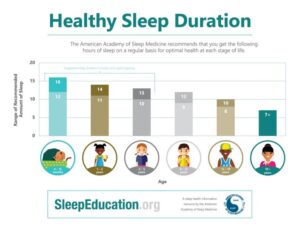Diagnostic Sleep Center
Welcome to the first step in getting better sleep. Our Diagnostic Sleep Center offers a full line of adult services to diagnose and treat more than 150 different sleep disorders. We can help with your CPAP machine and mask to ensure that you’re getting the maximum benefits from your treatment.
If sleep problems are causing you to have health problems, making you irritable or depressed, or affecting your concentration, see your doctor to determine if sleep center testing can provide answers and solutions. Sleep studies at our lab monitor all activities that occur during the night in a relaxing, home-like environment.
Frequently Asked Questions
How would I know if I have a sleep problem?
Significant sleep disorders presently affect approximately 25 percent of the general population. Adults should feel refreshed and ready to face the day after 7.5 to 8 hours of uninterrupted sleep. If you often feel unable to perform throughout the day, this is an indicator of a possible nighttime problem.
How are sleep disorders diagnosed?
The starting point is a good sleep history obtained by talking with your physician. Doctors in the Montezuma County area are familiar with sleep disorders and can order a study for you if necessary. The most common sleep disorders are diagnosed by having a sleep study done in a controlled environment which is a bedroom-like setting at the hospital. Patients are monitored throughout their normal sleep period, whether that is at night or even during the day for individuals who perhaps routinely work a night shift.
Will my insurance cover a sleep study?
Most insurance companies cover sleep studies and consider them and a valuable diagnostic tool to aid in managing overall health. The majority of insurance companies do not require prior authorization, but we will verify your coverage if you need to have a sleep study at our center.
How can I schedule a sleep study?
Your primary care physician can order a study for you. Speak with your doctor if you feel you need this service and all of the arrangements will be taken care of, or call the Sleep Center directly at 970-564-2678 for more information.
Categories of Sleep Disorders
- Insomnias
- Hypersomnias
- Sleep Breathing Disorders
- Circadian Rhythm Disorders
- Parasomnias
- Sleep Movement Disorder
Risk factors for Obstructive Sleep Apnea (OSA)
- Excess weight: People who are obese have 4x the risk of sleep apnea than people who are of a normal weight. Fat deposits around your upper airway may obstruct your breathing. But not everyone who has sleep apnea is overweight.
- Neck circumference: Men >17 inches (43 centimeters) Women >15 inches (38 centimeters)
- A narrowed airway: You may have inherited a naturally narrow throat. Tonsils or adenoids may become enlarged and block the airway
- Being male: Men are twice as likely to have sleep apnea
- Age
- Family history
- Use of alcohol, sedatives or tranquilizers: These substances relax the muscles in your throat.
- Smoking: Smokers are three times more likely to have obstructive sleep apnea than are people who’ve never smoked. Smoking may increase the amount of inflammation and fluid retention in the upper airway.
- Nasal congestion: If you have difficulty breathing through your nose — whether it’s from an anatomical problem or allergies — you’re more likely to develop obstructive sleep apnea.
Treatment for Sleep Disorders
CPAP Titration Study
This type of sleep study is used to calibrate your CPAP device. If you are diagnosed with obstructive sleep apnea, you will need a CPAP study before you can begin treatment. Continuous positive airway pressure is the frontline treatment for obstructive sleep apnea. CPAP keeps your airway open by providing a gentle stream of air through a mask you wear while you sleep.
Oral appliance therapy
This treatment for snoring and sleep apnea involves wearing a removable oral appliance in your mouth as you sleep. This is ideal for patients who cannot tolerate CPAP.
Surgery
The board-certified sleep specialist may recommend surgery for patients who cannot tolerate CPAP or an oral appliance. Surgery is not as effective as sleep apnea treatment.

Melatonin
Melatonin is a hormone that is frequently used as a supplement for sleep. These are widely available in most drugstores and nutrition retailers in the form of a pill. Melatonin is most effective in treating circadian rhythm disorders.
Cognitive Behavioral Therapy
Cognitive behavioral therapy is a type of treatment that addresses the underlying thoughts and behaviors that prevent you from sleeping well. This treatment is clinically shown to be the most effective way to treat insomnia in the long term.
Sleep Medications
Medications reduce or temporarily treat sleep-related problems such as insomnia by targeting a specific part of the brain. These medications are safe when used in the short term under the supervision of a board-certified sleep physician.
Bright Light Therapy
Bright light therapy uses artificial light to reset circadian rhythms and treat problems such as jet lag, shift work disorder or seasonal affect disorder.
